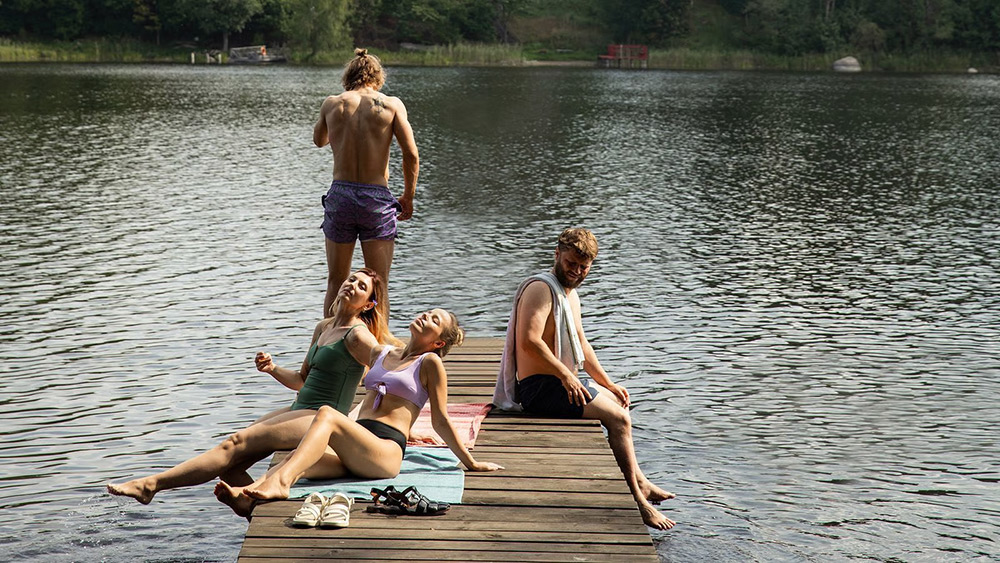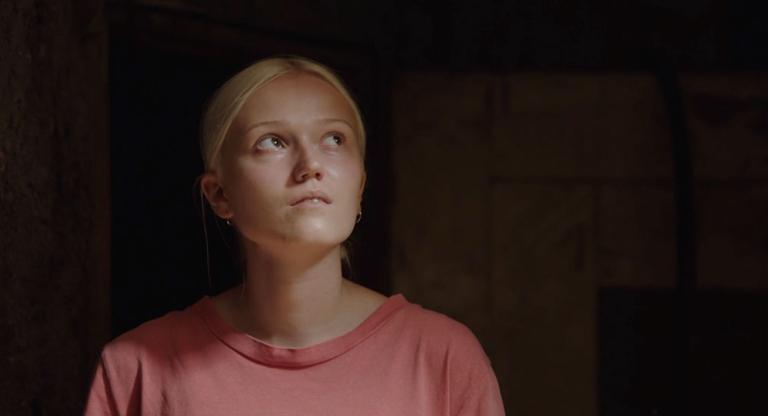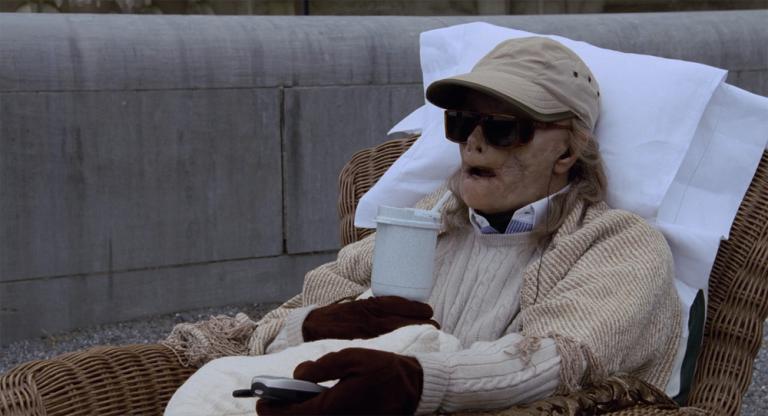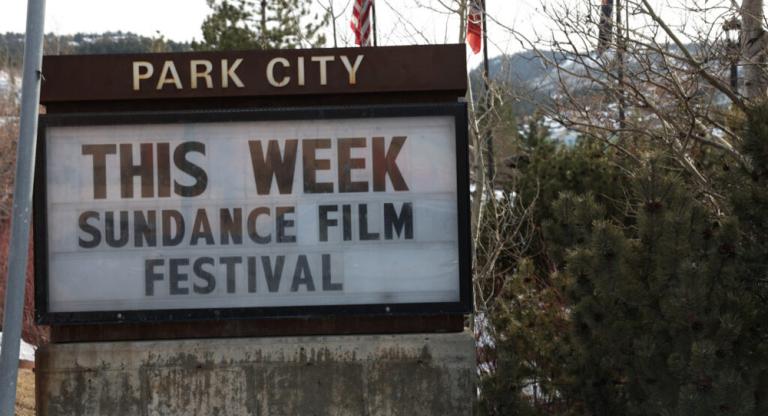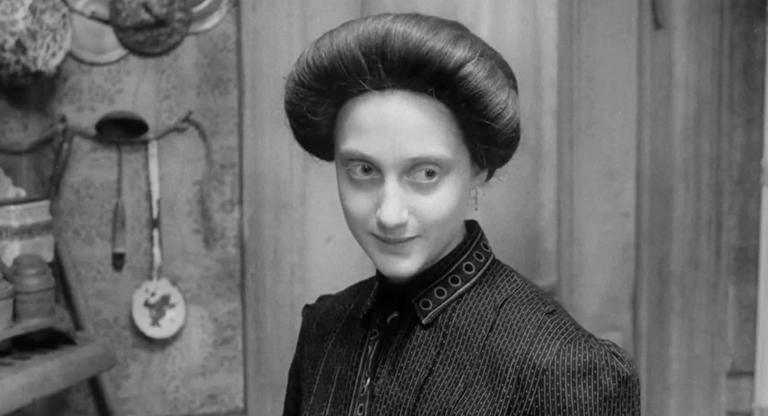About a half an hour into Lithuanian writer-director Laurynas Bareiša’s sophomore feature, before anything has really happened yet, one of my favorite sequences of the year: Two men, Tomas (Giedrius Kiela) and Lukas (Paulius Markevičius), who have nothing in common save that their wives are sisters, sitting on a porch, smoking cigars in a medium shot; their wives, Justė (Agnė Kaktaitė) and Ernesta (Gelminė Glemžaitė), at whose family summerhouse the couples are vacationing, are seated opposite them, their backs to the camera. Tomas—a few years older, bowl-cut, pot-bellied—stands up, stretches, punches the air a few times like his trainer taught him, and invites his brother-in-law to “spar a little.” As Ernesta protests that the nearest hospital is an hour away, Lukas, a blond Adonis and more pertinently an actual, professional MMA fighter, sighs, puts down his cigar, and wraps things up almost immediately, with a kick that would have had Tomas bleeding out of his ear if he’d meant it.
Bareiša (who won the directing prize at Locarno last year) cuts to a medium shot of the sisters, eyebrows raised in suppressed exasperation; on her smartphone, Ernesta cues up an eternal ‘90s Eurobop, and she and her sister lock eyes, stand, and begin a synchronized interpretive dance routine—swivel the hips, snap the fingers, climb the imaginary rope, brush the shoulders—clearly remembered from girlhood. They fall out of time but get back into it; they’re laughing like it’s a goof but looking at each other like it’s a transportive nostalgic reverie. Their husbands are barely there—Lukas is just an out-of-focus ponytail in the foreground. The camera drifts to the left to find Justė and Tomas’ daughter, staring mutely for a moment at the mother and aunt who may or may not have noticed her yet, and Ernesta and Lukas’ son, who reaches down and stops the track. The kids want to go swimming.
Formally and narratively symmetrical, the shot-reverse shot of the boys and girls at play is at once naturalistic and studded with ambiguous tension, an appealingly Bazinian serving of the subtexts—gender roles, family ties, marital problems, parental obligations—peeking through the topsoil of the everyday, seeds of many possible futures which may or may not be cultivated by circumstance.
Bareiša repeats this sequence later in the film as a flashback, letting it play out exactly the same, except for the song on Ernesta’s phone—a slight variation, to signify the small contingencies which can alter a family history. The film’s chronology jumps around a major tragedy, the precise nature of which is withheld from the audience for a considerable amount of the runtime. Jumbling these sketches, Tetris blocks fitting together into a portrait of emotional fallout, Bareiša is teasing the audience, yes, but by disrupting the linearity he also gets at the arbitrariness of family life, at the way that young parents discover themselves yes-anding through a life story that is so much longer and twistier than they thought it would be, revealing facets of character and swerves in trajectory that will finally seem to have been inevitable, but only in retrospect.
Bareiša’s first feature, Pilgrims (2021), co-starring Kiela as one half of an odd couple on a road trip to the site of a shared trauma (initially unspecified, as in Drowning Dry), opened outward from a portrait of grief into a consideration of historical memory and willful forgetting, and of the urban-rural divide in a young European nation. It was character-driven but politically intelligible, both subtle and schematic in the manner of the early Romanian New Wave. It felt like a short story; so does Drowning Dry, but like a more freestanding one. Like the Carver of “Beginners” or the Munro of “Miles City, Montana” and “Differently,” Bareiša captures something of the unfoldingness of life.
Drowning Dry screens July 18-24 at IFC Center. Director Laurynas Bareiša will be in attendance for a Q&A moderated by Ryan Lattanzio tonight, and another moderated by Sierra Pettengil tomorrow night.
